When it comes to preparing infant formula, choosing the right types of water is crucial for your baby’s health. Whether you opt for distilled or purified water or even choose to add trace mineral drops to tap water, it’s important to ensure that the water you use is safe and appropriate. Using contaminated water can be harmful to your baby’s health.
This guide will explore various types of water for mixing infant formula and offer tips for safe preparation. It covers information on the best formula and water for baby formula.
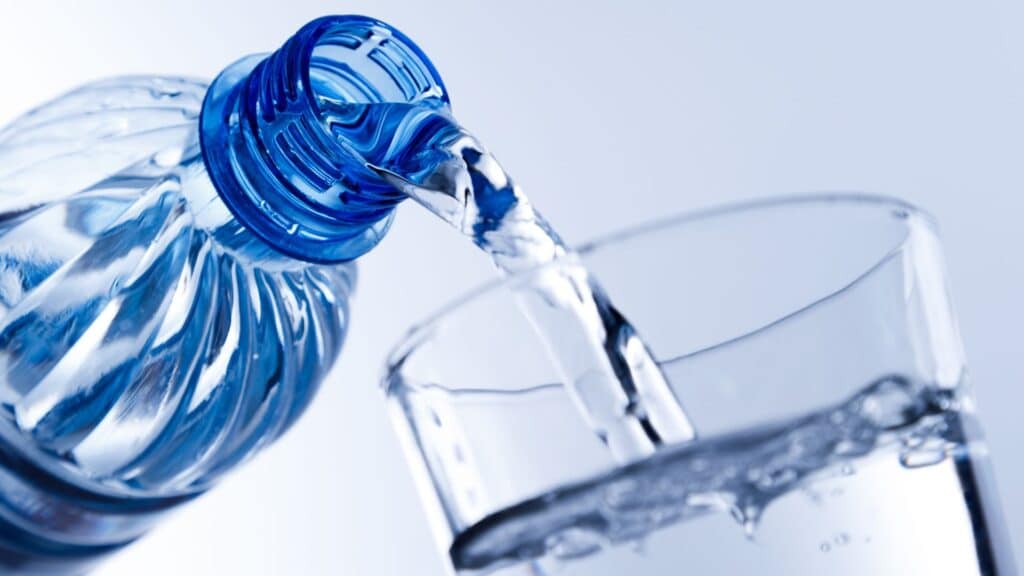
Fluoridated Water
Fluoridated water is water that has been treated with a specific amount of fluoride to prevent tooth decay. Supporters think that both low-fluoride bottled water and fluoridated water can improve oral health and prevent tooth disease. Especially in communities with limited dental care access.
But remember, choosing the right water for your baby’s formula is crucial for their dental health. Too much fluoride in your baby’s formula can cause faint white lines or spots on the baby’s developing teeth. To avoid this, experts recommend using low-fluoride bottled water or powdered formula.
When mixing the formula, make sure to use water at body temperature and follow the instructions on the packaging carefully. It’s important to note that while fluoride is beneficial for dental health, excessive fluoride exposure can lead to water intoxication or dental fluorosis. Therefore, it’s essential to maintain the optimal fluoride level in your baby’s formula.
The American Academy of Pediatrics suggests that the optimal level of fluoride in water for baby formula should be between 0.5-1.0 mg/L, depending on your baby’s age and the region you live in. If your tap water has a higher level of fluoride, you may need to use low-fluoride bottled water or consider giving your baby fluoride supplements after consulting with a pediatrician.
Tap Water
Tap water is a primary source of drinking water for many households through water systems. While tap water is generally safe to drink, it carries some risks, especially when used to prepare baby formula. It’s important to be aware of these risks and take appropriate measures to ensure that the water used for formula preparation is safe for your baby.
One of the first things you can do is to have your tap water tested. You can contact your water company or health department to inquire about water testing. They can provide you with information about the water quality in your area and any potential risks associated with using tap water for formula preparation.
If you choose to use tap water to prepare your baby’s formula, it’s important to follow the proper guidelines. The Centers for Disease Control and Prevention (CDC) recommends boiling tap water for at least one minute and then letting it cool before using it to prepare the formula.
Boiling Tap Water
Boiling tap water will help to reduce the risk of bacterial contamination and other water-related diseases. Water-related diseases can cause electrolyte imbalance and bacterial infection. Bacterial contamination in drinking water can lead to gastrointestinal illness, which can cause vomiting, diarrhea, and dehydration. This can result in electrolyte imbalances in infants and young children, which can be dangerous and even life-threatening, especially to babies born prematurely.
Alternatively, you can use bottled water to prepare the formula. Nursery water is commercial water designed for mixing formula. Manufacturers pre-boil and distill it to eliminate impurities. This makes it a safe and convenient option for parents who prefer not to use tap water.
In some cases, tap water can contain harmful levels of lead, particularly in older homes with outdated plumbing systems. This can be particularly harmful to babies, as lead exposure can cause developmental problems. If you think your tap water might have lead, you should take steps to lower the exposure risk.
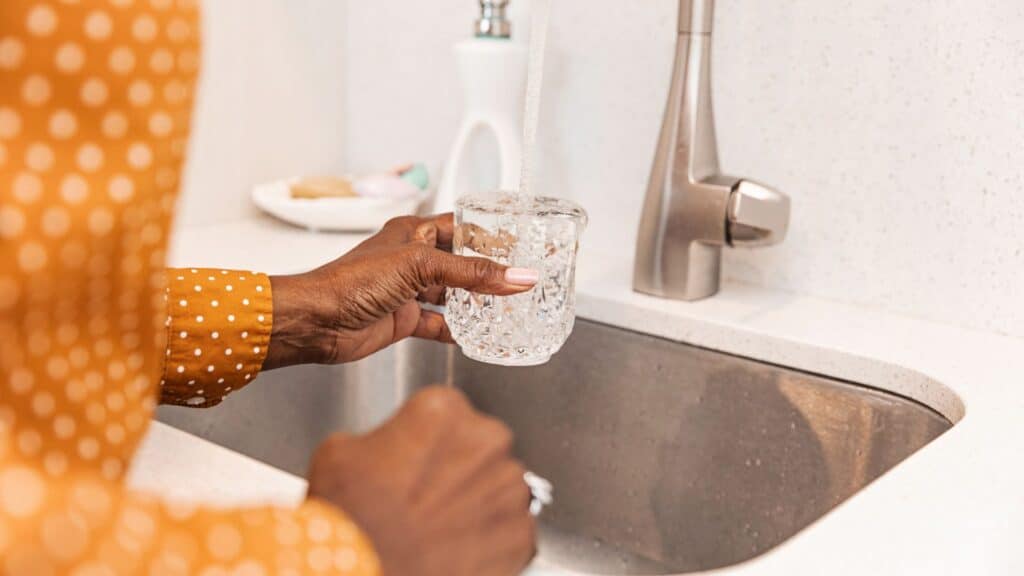
Boiled Water
Boiled water is the best way to ensure that you give your baby the safest water possible. Boiling water will kill germs, bacteria and parasites that may be present in the water. However, using clean utensils and boiled water is important to avoid contaminating your baby’s milk or food with dangerous organisms.
How to Boil the Water for Babies
There are many ways to boil water, but one of the safest and most effective ways is to use an electric kettle. Electric kettles allow you to avoid putting your child in danger by boiling water over a fire or stove, and they also make it much easier to boil enough water for multiple children at once. However, if you don’t have an electric kettle at home, there are other methods you can use to boil water safely for babies.
First, choose a container designed for heating food and liquids, or use one made of glass or stainless steel. You should never use plastic containers when heating food or liquids because they could leach chemicals into your baby’s food and drinks.
Second, bring your water to a rolling boil and let it sit for at least 10 minutes before serving it to your child. This ensures that you kill off any harmful bacteria before your little one consumes them!
Filtered Water
Filtered water is a great way to ensure your baby gets clean water. Using filtered water on your baby is important because unfiltered tap water can contain chemicals and minerals like chlorine, fluoride, lead and copper. These contaminants can be harmful to your baby’s health.
Types of Filters and Their Effectiveness
There are many types of water filters. Let’s look at some of the most popular ones and see how effectively they remove impurities from your water.
1) Carbon Filtration: This is the most common type of home filter. It uses small granules that contain carbon to trap impurities as the water passes through them.
2) Reverse Osmosis: This method uses pressure to force water through a membrane that traps impurities in its pores. It keeps naturally occurring minerals in the water, so it’s best for drinking water only.
3) Distillation: This method heats your water until it evaporates completely into steam, leaving behind any impurities in its place.
4) Ultraviolet Light: This filter uses UV light to kill microorganisms and other harmful organisms in your water supply.
Bottled Water
Parents worried about public water quality should consider bottled water. It is an excellent option in areas with high lead or contaminants. It also helps ensure babies get enough liquid if they don’t consume enough breast milk or formula.
Some types of water in a bottle are better than others regarding purity and safety. It would help if you also considered the environmental impact of buying bottled water instead of tap water.
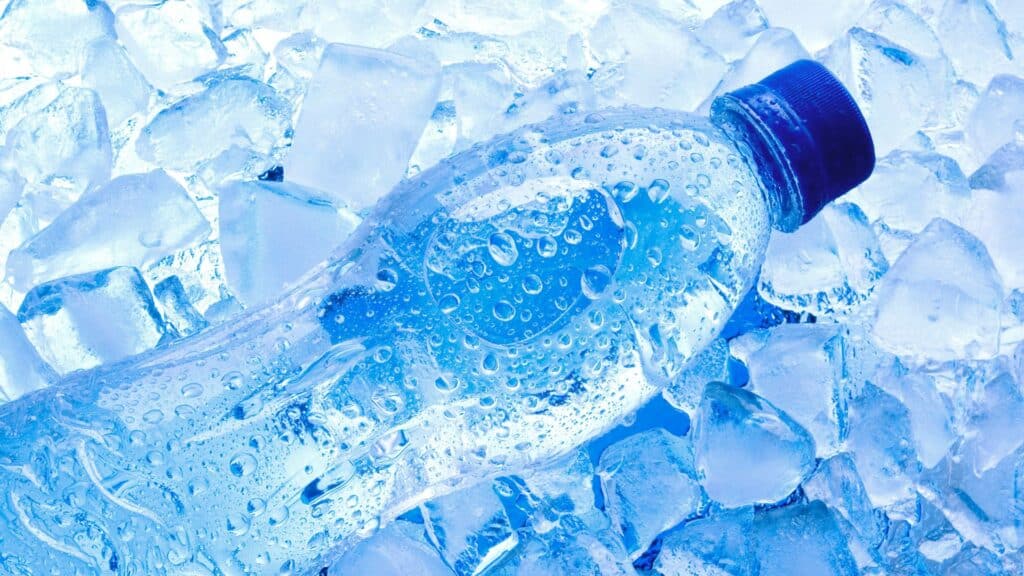
Types of Bottled Water
Here’s what you need to know about the different types of bottled water for babies:
Spring or Well Water
Spring water or well water comes from an underground aquifer that flows naturally to the surface. Well water is usually the type of bottled water that undergoes the least processing.
Distilled water
Mineral water is spring water that contains naturally occurring minerals such as calcium, magnesium, sodium chloride and other trace elements. Mineral water comes from an aquifer protected from contamination by man-made sources such as agricultural chemicals or industrial pollutants.
Distilled Water
Distillation produces distilled water. This process boils the water and then collects the pure vapour. The vapour condenses back into liquid form. When this process occurs over and over again, it removes all impurities from the water, leaving nothing but pure H2O behind!
Purified Water
Purified water undergoes treatment to remove impurities like chemicals and minerals. Methods include reverse osmosis, distillation, or deionization. The resulting water usually has no taste or odor. People often drink it, cook with it, and use it for other needs requiring pure water.
Artesian Water
This types of water comes from an artesian well, a deep well that taps into an underground water supply. This water naturally filters and has no added minerals or chemicals. You can store artesian water in any container at room temperature. It does not lose quality.
It’s important to note that not all bottled waters are created equal, and bottled water quality can vary depending on the source, treatment, and bottling processes used.
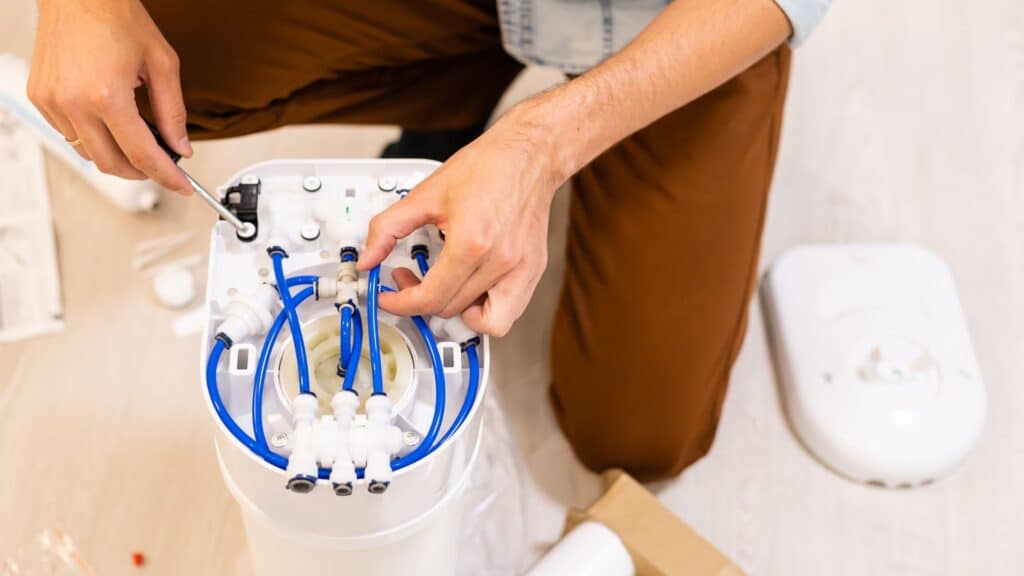
Using Well Water for Baby Formula
A source of water not yet discussed in this article but one that might be applicable to many families, especially those living in rural areas, is well water. Unlike city-supplied tap water, well water comes directly from the ground and is not treated with chemicals or tested for safety and purity by public health authorities.
Families relying on well water need to be particularly vigilant to ensure the safety of the water being served to their babies. Understanding the quality and safety of your well water is crucial as it can contain harmful substances like bacteria, nitrates, and heavy metals which are unsafe for little ones.
It’s strongly recommended that you conduct a thorough water test before using it to prepare your baby’s formula. The test should ideally include checks for E.coli bacteria, nitrate, nitrite, lead, and other potentially harmful substances. Consider using a state-certified laboratory for these tests; your local health department can typically provide a list of such labs.
Even if your test results come back fine, it’s advisable to boil well water before use in infant formula preparation. Boiling water can kill most bacteria and viruses that might still be present in the well water. Also, note that water softeners should not be used for water intended for infant feeding, as they can significantly increase the sodium content in the water.
Remember, the quality of well water can change over time, so regular water testing is crucial. Always consult with your baby’s pediatrician or a local health professional before using well water for baby formula preparation.
How to Select the Appropriate Water for Your Baby?
Choosing the right water for your baby is a very important task. A lot of parents are confused about what to do. Here are some tips that can help you with this issue.
You first need to consider whether your baby is breastfed or formula fed. If they are formula fed, you will need to select bottled water and make sure it meets all the standards set by the FDA. Bottled water should not contain additives or chemicals that may harm your child’s health. You should also avoid mixing different kinds of water as it may cause digestive problems.
If your child is breastfed, then you don’t need to worry about this issue as long as there aren’t any known allergies or sensitivities to certain types of water or additives in them, such as fluoride or chlorine levels being too high for your baby’s system (these are just examples).
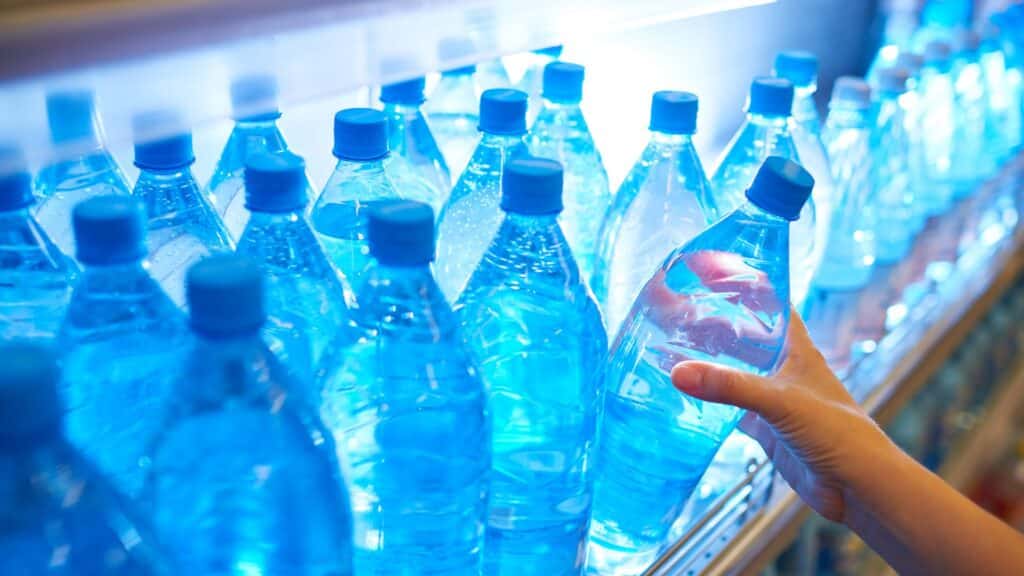
Conclusion
Water quality is of utmost importance when it comes to ensuring the health and well-being of your baby. The World Health Organization recommends using water that is low in mineral content, free from harmful contaminants and has been boiled and cooled to the appropriate temperature before making the formula.
This is especially important in areas with limited access to safe drinking water or in households that rely on well water or other non-treated water sources. Additionally, it is recommended to use bottled water labelled as suitable for infant consumption if tap water quality is questionable. It is always best to consult your baby’s doctor or a qualified healthcare professional regarding the specific water requirements for your baby’s needs.
If you have any questions, don’t hesitate to ask. I’ll do my best to provide you with an informative response.



